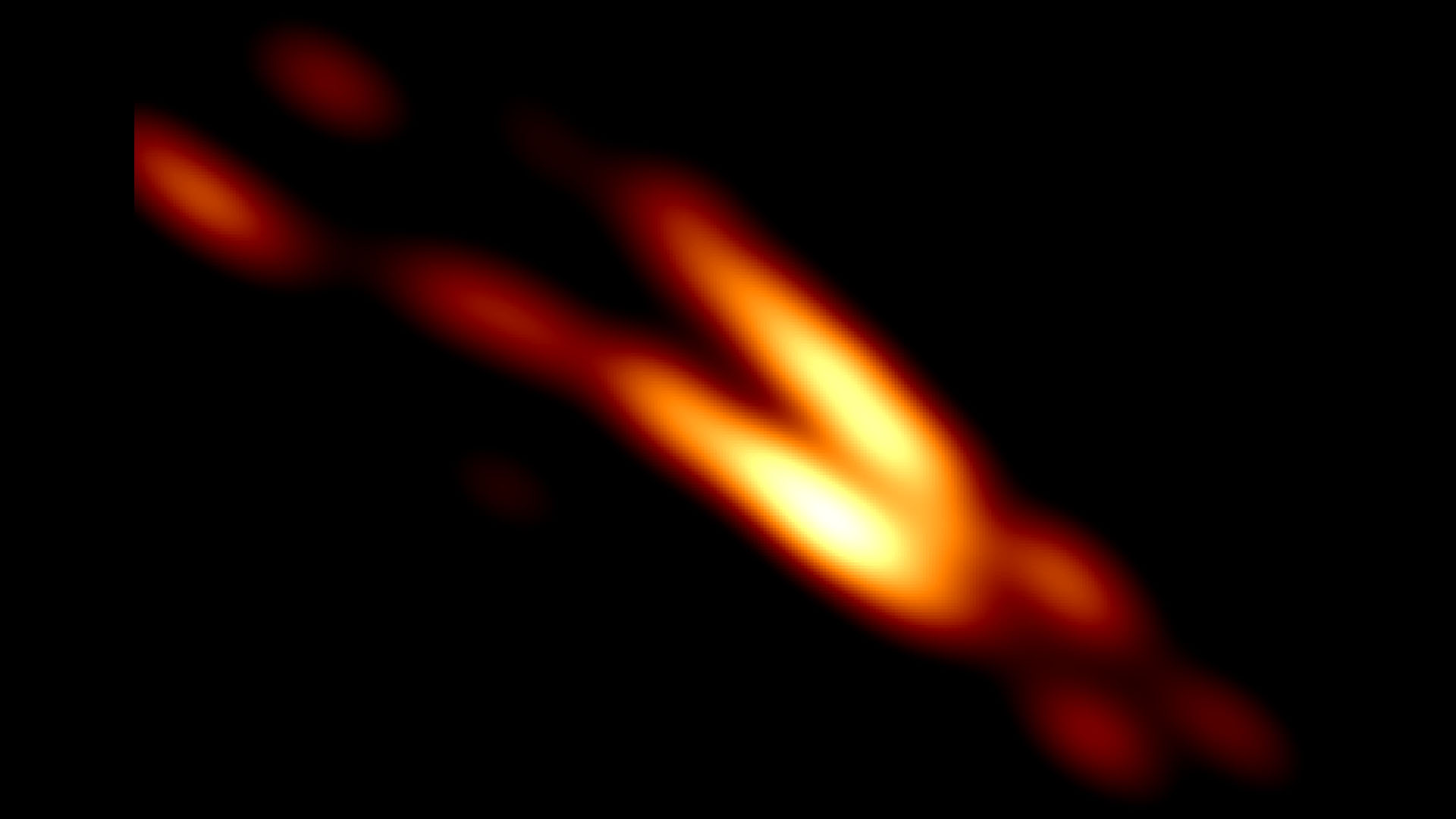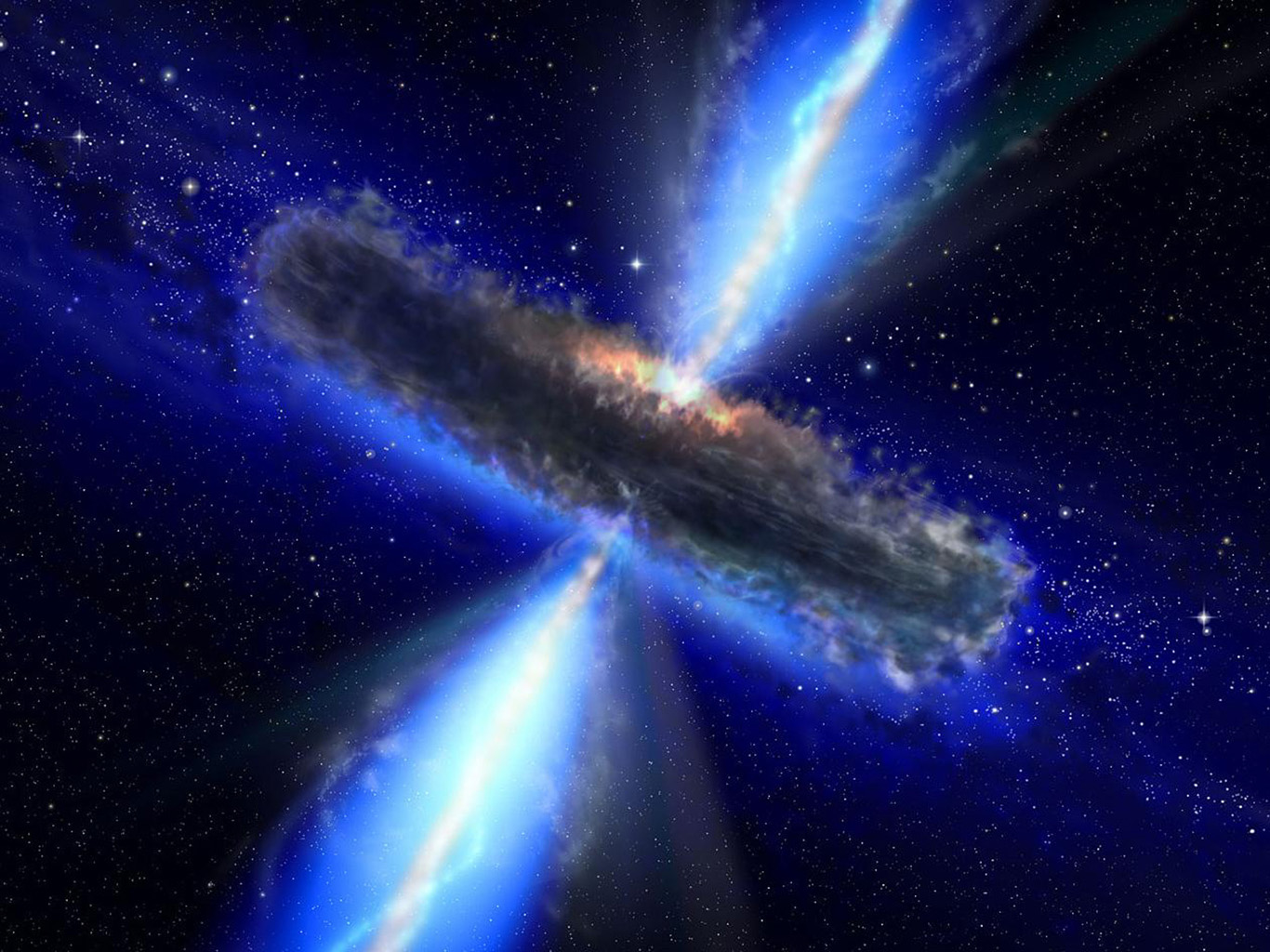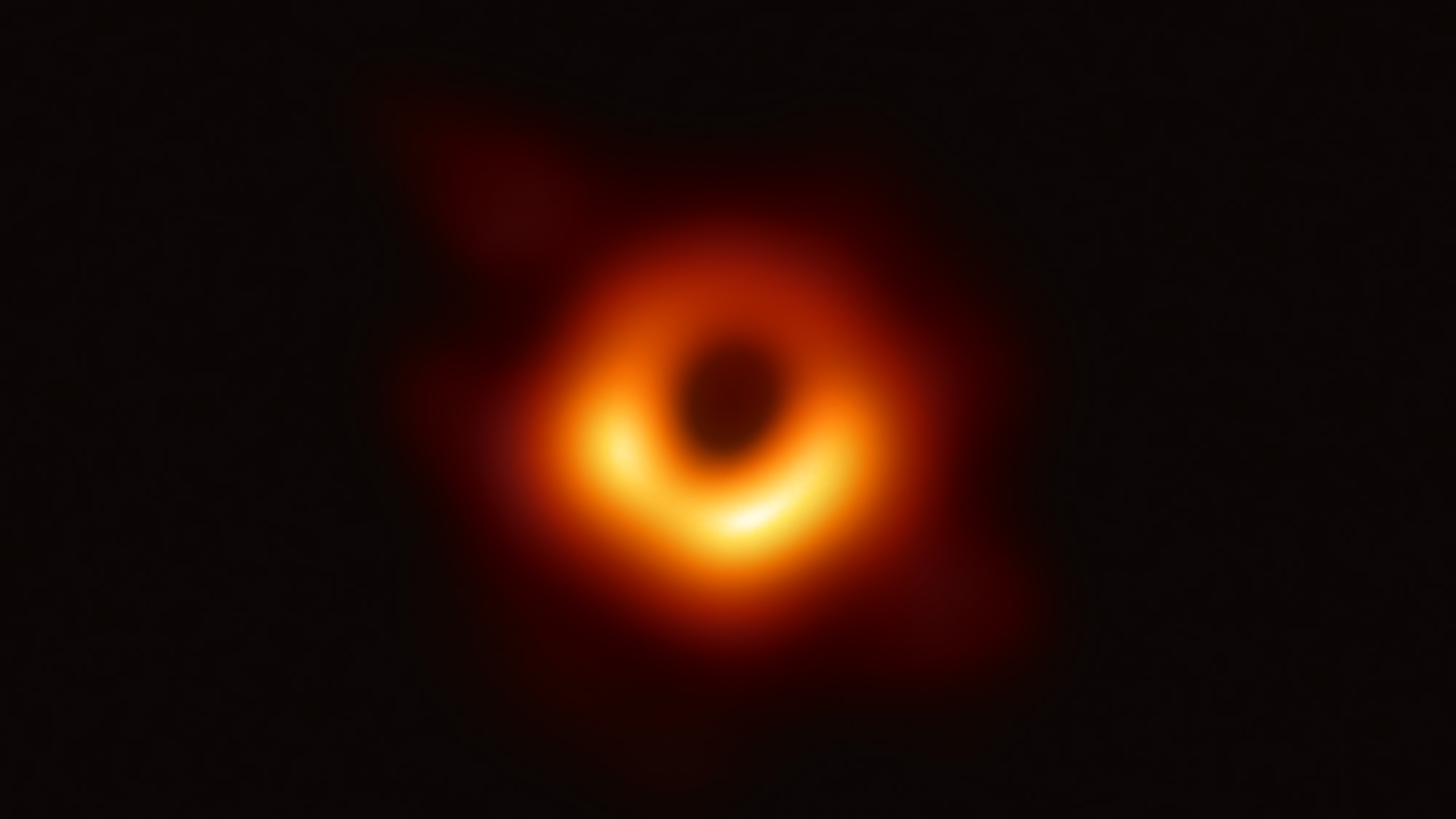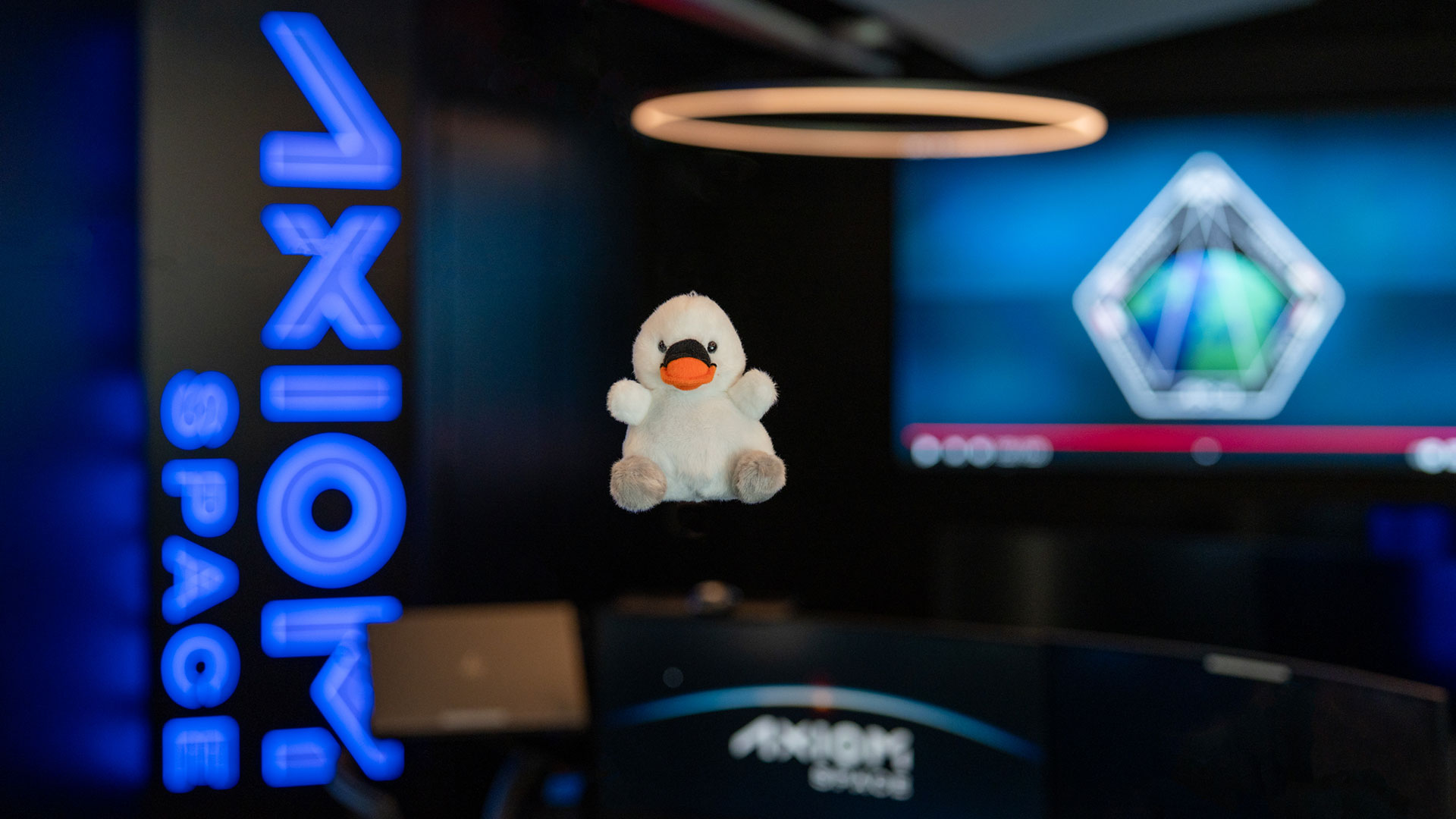Event Horizon Telescope returns to work touring black holes and exotic cosmic objects
The partnership has a daunting agenda to tackle this year.

The planet-scale array of observatories most famous for creating the first-ever image of a black hole is heading back to work.
The Event Horizon Telescope (EHT) is gearing up for its 2022 campaign, which includes about seven days of remote observations. The telescope network will focus on dramatic objects around the universe including black holes, galaxies and quasars, which are superbright objects with black holes in the middle.
As the coalition did last year, EHT will rely on remote observing techniques given the ongoing COVID-19 pandemic. The observation window runs from Tuesday (March 15) to March 28 to accommodate bad weather or other issues, EHT board secretary Eduardo Ros, told Space.com in an email. Ros is also the scientific coordinator of the radio astronomy department at the Max Planck Institute of Radio Astronomy in Bonn, Germany.
Related: Eureka! Scientists photograph a black hole for the 1st time
The eight facilities that gathered the observations that went into the first black hole image all are joining this year's campaign; three new facilities are also taking part in observations. The additional partners will give scientists data about more types of light than they had for the famous image released in 2019, Ros said.
The 11 observatories are located around the globe, from Greenland to Antarctica and Hawaii to France. Given the weather patterns at each of the sites, the Event Horizon Telescope collaboration attempts observations only in March and April.

According to Ros, this year's targets include both the black hole at the center of galaxy Messier 87, which was the subject of the famous ring image released in 2019, and Sagittarius A*, which is the dynamic black hole at the center of our own Milky Way galaxy about 25,000 light-years away from Earth.
Get the Space.com Newsletter
Breaking space news, the latest updates on rocket launches, skywatching events and more!
The EHT has allotted smaller chunks of time to observing a half dozen other black holes and quasars, ranging as far as nearly 7 billion light-years away from Earth, Ros said.

This year's campaign marks the second consecutive year of observations after two years on hiatus for the Event Horizon Telescope. "2019 was cancelled for operational reasons, and 2020 was canceled due to the restrictions imposed by the COVID-19 pandemic," Ros said.
This year, the telescope network will again rely on remote support for the observing sites using what Ros called "a similar approach" to last year's procedure.
Follow Elizabeth Howell on Twitter @howellspace. Follow us on Twitter @Spacedotcom or Facebook.
Join our Space Forums to keep talking space on the latest missions, night sky and more! And if you have a news tip, correction or comment, let us know at: community@space.com.

Elizabeth Howell (she/her), Ph.D., was a staff writer in the spaceflight channel between 2022 and 2024 specializing in Canadian space news. She was contributing writer for Space.com for 10 years from 2012 to 2024. Elizabeth's reporting includes multiple exclusives with the White House, leading world coverage about a lost-and-found space tomato on the International Space Station, witnessing five human spaceflight launches on two continents, flying parabolic, working inside a spacesuit, and participating in a simulated Mars mission. Her latest book, "Why Am I Taller?" (ECW Press, 2022) is co-written with astronaut Dave Williams.
